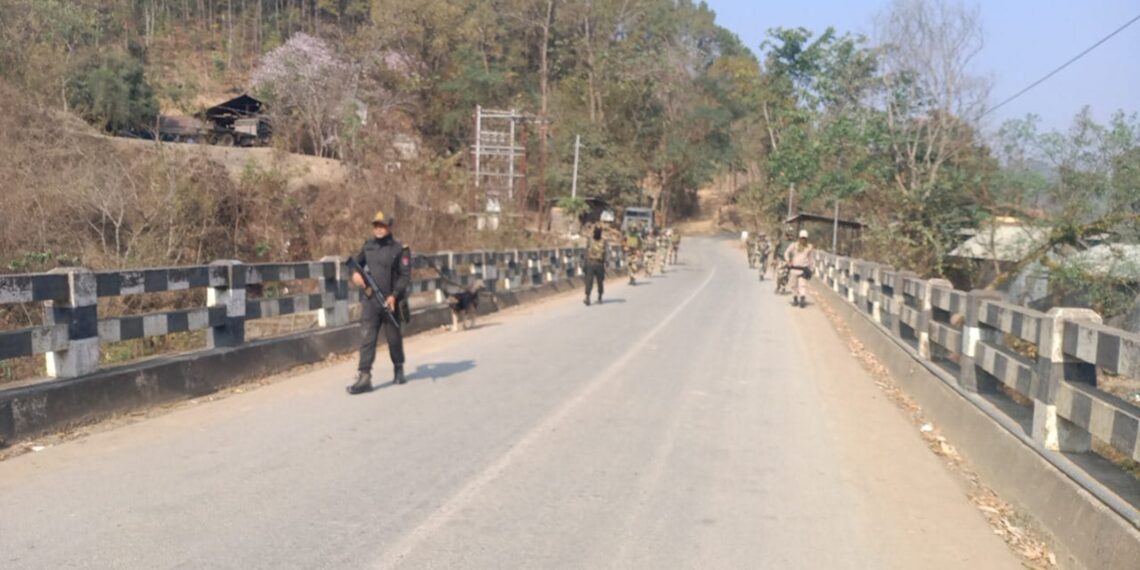Imphal: Members of the Kuki-Zo community staged a demonstration at Thangjing Hill in Manipur’s Churachandpur district on Sunday, barring entry to Meitei pilgrims seeking to visit the sacred site.
Hundreds of participants gathered at the hill, arriving in vehicles from various locations to hold a sit-in protest, officials reported.
The demonstration followed warnings issued on Saturday by Kuki-Zo civil society organisations, which strongly opposed any attempt by Meiteis to access the site.
These groups argued that without a political settlement between the Government of India and the Kuki-Zo community, the Meitei community has “no jurisdiction to enter Kuki-Zo land.”
The Thangjing Hill, revered by the Meitei community, is traditionally visited in April as part of an annual pilgrimage.
The Kuki-Zo groups have warned that any attempt to cross the buffer zone surrounding the hill would be seen as a provocation.
“Whoever attempts to cross the buffer zone shall be considered a direct challenge to the Kuki-Zo community, and any untoward incidents that occur shall be solely the responsibility of those undertaking such actions,” they stated.
The buffer zone, guarded by security forces, separates the Meitei-majority Imphal Valley from the Kuki-dominated hill districts.
Authorities have heightened security in Bishnupur and Churachandpur districts, particularly in sensitive areas like Moirang and Phougakchai Ikhai, to prevent escalation.
In response, the Meitei Heritage Society issued a statement condemning the restrictions as unconstitutional.
ALSO READ: Salman Khan receives fresh threat on Mumbai Police helpline; case filed
“The Indian State must decide if the rule of law should prevail and whether the constitutional rights of its citizens should be safeguarded,” it said, adding that the threat to prevent Meiteis from visiting Thangjing Hill is a “blatant violation of freedom of movement and religious practice.”
The situation remains tense as the standoff underscores the deep divisions and unresolved issues between the two communities.















